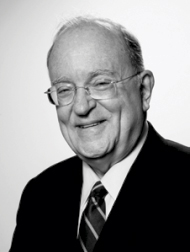Presentation
Experimentation in DE
There is no customary algorithm for success in DE - only experimentation with ideas and resources will bring positive results!
The institutions that act in the DE sector in the country have now become closer to those non-regulated entities due to their capability to create meaningful educational experiences for those who really want to learn. But this new "freedom" - one of the positive consequences of this reorganized point of view of the Ministry of Education - will only have good results if educational institutions, either public and private, mature their researches activities in their own curricular, pedagogical and didactic strategies.
Each institution will have to develop methods to measure with scientific precision the inputs, processes and outputs of its operations, and learn how to make their decisions based on metrics indicate better or lesser effectiveness in the training of their students. "Success" is much less an issue of making the selection of new students with a filter of extreme rigor than to demonstrate that the "average level" students were transformed by the institution in "great apprentices".
The new theoretical ideas about learning and the new technologies that enable the unusual practices flowing today in the DE world are many, varied and highly linked to the habits of the new generations.
The differences between the concepts of pedagogy, andragogy and heutagogy; the different styles of learning among people; the active learning and "inverted" classes; the virtual and augmented realities; the use of the "cloud" to increase efficiency; the own creation and/or the use of open educational resources from other entities; the learning objects; the educational entertainment; the MOOCs - Massive Open On-line Courses; the bots and IA assistants; machines that learn, virtual laboratories and libraries; data bases that talk to each other; learning communities, practice and other forms of collective interaction; the teachers' new responsibilities; mobile technologies; distinctive attributes of video presentation and new ways of students evaluation are some of the DE novelties circulating internationally.
New publics attended, such as people with special difficulties of locomotion; candidates for common registration, that are not yet adequately prepared academically; individuals who have accumulated University credits in the past, but have quit for different reasons and can now return and, with the DE, will complete their studies for a degree, are other important objectives, as well as the use the DE more directly as a "social good" for the community.
The careful and systematic experimentation of some of these strategies (not all at once, please!) and the reporting of varied experiences in terms of "what works and what doesn't" should be part of any organization that offers programs involving the DE.
 Fredric Michael Litto
Fredric Michael LittoPresident of ABED
